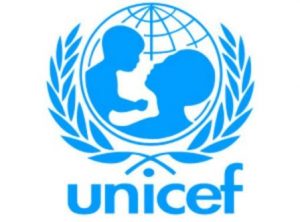ABUJA – More than half of schools in Borno State have remained shut following continued attacks on communities within the state by the Boko Haram terrorist group, the United Nations Children Fund (UNICEF), said on Thursday.
In a message made available to Nigeria Health Online by UNICEF, over 2,295 teachers have been killed while 19,000 have been displaced. Almost 1,400 schools, the organization said, have been destroyed with the majority unable to open because of extensive damage caused by bombardments, or because they are in areas that remain unsafe since 2009 that the crisis began.
“To date, nearly one million children have been displaced by the crisis and 450,000 children under the age of five are expected to suffer from severe acute malnutrition this year.
The use of children as human bombs – close to 100 so far this year – has sown a climate of mistrust among communities in the northeast, and a cholera outbreak has affected more than 3900 people, including over 2450 children,” the organization furthered in the release,” UNICEF stated.
The organization also decried under-funding of life-saving emergency programmes in the whole of north-eastern part of the country, adding that with only three months left in the year, there is yet 40 per cent funding gap for its programmes for the region this year.
Borno State has been the most hit state by the belligerent group in Nigeria, the other two mainly affected are Yobe and Adamawa.
Despite Nigerian government acclaimed victory over the insurgents, following military takeover of Sambisa Forest, the headquarters of the terrorists, Boko Haram has continued to attack Borno State, forcing more children to be orphaned and more families to be displaced.
In its Thursday message, UNICEF said an estimated three million children are in need of emergency education support.
The organization quoted its Deputy Executive Director, Justin Forsyth, as saying: “children in northeast Nigeria are living through so much horror.”
Forsyth, the release said, stated this at the end of a three-day visit to Maiduguri, the epicentre of the crisis in the northeast. He was quoted further: “In addition to devastating malnutrition, violence and an outbreak of cholera, the attacks on schools is in danger of creating a lost generation of children, threatening their and the countries future.”
Part of the release read: “Some children living in camps for the displaced in Borno state, however, are actually benefiting from education for the first time in their lives. In the Muna Garage camp on the outskirts of Maiduguri, for example, an estimated 90 per cent of students were enrolled in school for the first time.
“In the three most-affected states of northeast Nigeria, UNICEF and partners have enrolled nearly 750,000 children in school this year, establishing over 350 temporary learning spaces, and distributing almost 94,000 packs of learning material that will help children to get an education.
“UNICEF is also working with partners to rehabilitate schools and classrooms, as well as training teachers to build a stronger education system for the future. While in Maiduguri, Forsyth met with families and children affected by the conflict who told him of their fear living under Boko Haram and the dire conditions they live in.”


